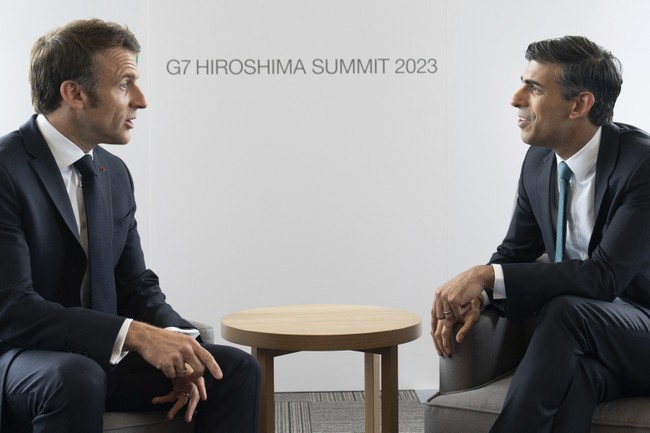
The globalists in Europe are sounding very nervous this week and for good reasons. The latest round of elections across the European Union resulted in what is being described as a “realignment” as right-wing candidates “trounced” their socialist and centrist counterparts. This was especially true in France and Germany, but the effect showed up elsewhere as well. French President Emmanuel Macron was compelled to call for snap elections beginning in a few weeks after his party lost badly to Marine Le Pen’s right-wing National Rally. In Germany, Chancellor Olaf Scholz’s Social Democrat party was overshadowed by a coalition of right-wing parties. There definitely seems to be a groundswell of support for more traditional, conservative policies in Europe at the moment. (National Review)
Advertisement
Early projections of the EU-election results show that the continent’s right-wing parties have made significant advances as voters signal their dissatisfaction with illegal immigration and inflation. Formerly powerful left-wing parties seem to have been routed, while centrists stayed the course.
This antiestablishment sentiment was expressed most strongly in Germany and France, two of the European bloc’s most powerful countries.
The French results prompted President Emmanuel Macron to dissolve the French parliament in preparation for snap elections on June 30 and July 7, as his party lost badly to Marine Le Pen’s National Rally, which is part of the Identity and Democracy coalition in the European Parliament.
The most hotly debated issues in these countries revolve around mass migration, security, and high prices. If that sounds familiar to you it’s because Europe is currently struggling with the same challenges we’re facing in the United States, and leftist policies are not delivering solutions over there, either. There has also been an outpouring of support for increased recognition of national identity. During a speech in France last night, Marine Le Pen promised to “end mass migration, prioritize purchasing power, and be ready to make France live again.”
The right-wing wave came ashore in other countries as well. Italy was already under the control of a conservative government led by Giorgia Meloni and her party. But that hold was solidified when a coalition of his conservative allies in the European Conservatives and Reformists parties increased their percentages. Spain’s prime minister Pedro Sánchez and his Socialist Workers’ Party tumbled, taking less than one-third of the vote. Meanwhile, the conservative People’s Party, aligned with right-wing parties, Vox and Se Acabó La Fiesta raked in fully half of the vote.
Advertisement
European elections are far more complicated than the fairly straightforward contests we have in the United States, so it will take a little while to see how this all shakes out. But there definitely seem to be some common themes emerging. People are unwilling to give up their traditional nationalist identities in exchange for some sort of globalist paradise. They are fed up with being overwhelmed by endless mass migration and watching their resources being drained away to provide for the “new arrivals.” They want security at home and safety in their streets. I’m not sure when ideas like that began being identified as “conservative values,” because I had long assumed that those were basic human priorities.
We’ve had a tendency to think of most European nations as being considerably more globalist than America and, to a certain extent, that’s true. The formation of the European Union did a lot to undermine the independent, nationalist tendencies of Europeans. But even though we are separated by a vast ocean, under the surface many of those European voters may still have a lot more in common with us than some would like to admit. I never imagined myself saying something like this, but I hope that in November, America’s voters will display some of the common sense we saw sweeping across Europe over the past few days.
Advertisement



